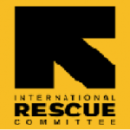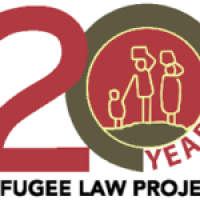Major Responsibilities
Management & Coordination
- Deputize for the SHASSC in providing day-to-day oversight of the Humanitarian Access & Security Department, including mentoring and supporting HASS team members.
- Provide technical guidance and support to field managers and coordinators on safety and access-related policies, procedures, and guidelines, in line with IRC’s Global Security Strategy and Security Minimum Standards (SMS).
- Contribute to reviewing, updating, and implementing country-wide security management plans, operational protocols, and context-specific guidance for all IRC locations in Nigeria.
- Collaborate with supply chain, finance, and HR teams to ensure security and safety considerations are integrated into budgeting, procurement, and personnel planning as needed.
Context Understanding & Analysis
- Compile and share regular reports on security incidents and humanitarian access trends, offering clear, data-driven insights to the SHASSC and senior leadership.
- Provide credible information, analysis, and forecasting on localized and national security contexts, highlighting implications for IRC programs and staff safety.
- Conduct or support security risk assessments (SRAs) and access reviews in coordination with field teams, ensuring that recommended mitigation measures are tracked and implemented.
Humanitarian Access & Strategy Development
- Develop responsive, context-appropriate humanitarian access strategies that facilitate program delivery in insecure or hard-to-reach areas.
- Promote community acceptance of IRC’s mission and humanitarian principles through proactive stakeholder engagement, relationship-building, and effective communication strategies.
- Contribute to contingency planning for new operational areas, supporting program design and implementation with risk-mitigation inputs.
Training & Capacity Building
- Identify knowledge and skill gaps among IRC staff and partners regarding security protocols, humanitarian access, and risk management.
- Facilitate and/or co-deliver trainings on security awareness, incident reporting, and crisis management, ensuring consistent capacity-building across all field sites.
- Coach and mentor the HASS team, field security focal points, and relevant program staff to strengthen technical competencies, including readiness to respond to emerging risks.
Program & Partner Cycle Management
- Collaborate with program teams during project design, implementation, and review, ensuring that access and security considerations are integrated into all phases.
- Engage in partner and vendor assessments to verify adherence to humanitarian principles, identifying and mitigating security and access risks in supply chain and partnership arrangements.
- Support the implementation of mitigation measures, ensuring alignment with donor requirements and IRC’s duty of care obligations.
Networking & Liaison
- Build and maintain a network of security focal points within IRC and among peer agencies, government offices, local communities, and other relevant stakeholders.
- Represent IRC in inter-agency forums, security clusters, and NGO security networks, as delegated by the SHASSC.
- Keep updated contact lists and warden systems for IRC offices, ensuring effective communication channels for staff alerts and incident reporting.
Emergency Preparedness & Response
- In coordination with the SHASSC, assist in developing and testing country-level emergency preparedness plans, ensuring alignment with identified scenarios.
- Advise and support the establishment of Critical Incident Management Teams (CIMTs) at field levels, strengthening rapid response and crisis management capabilities.
- Contribute to maintaining current evacuation and medevac plans, working alongside HR and other departments to safeguard staff well-being.
People & Culture & Staff Development
- Promote a culture of safety, respect, and team spirit, fostering an environment in which staff feel supported and well-informed about security policies.
- Ensure regular check-ins and performance reviews for direct reports, guiding the creation and monitoring of individual development plans.
- Advocate for staff care, self-care, and psychosocial support, engaging HR as necessary to address well- being concerns related to security stresses
- Key Working Relationships
- Internal: SHASSC (Supervisor), Country and Field Management Teams, Program Coordinators/Managers, Supply Chain, HR, Finance, and M&E teams.
- External: NGO counterparts, UN agencies, community leaders, security networks, government security agencies (as appropriate).
Minimum Qualifications:
Education:
- University degree in Security Management, Political Science, International Relations, or a related field preferred; a technical degree or certification in security-related disciplines with significant experience may be considered.
Experience:
- 5+ years of progressive experience in humanitarian access, safety, and security management in complex contexts, preferably including Nigeria or similar environments.
- Demonstrated record of implementing security management frameworks, protocols, and capacity-building initiatives at the field level.
- Technical Skills & Competencies:
- Strong grasp of humanitarian principles, duty-of-care standards, and NGO security protocols.
- Proven ability to analyze security contexts, synthesize information, and produce actionable recommendations.
- Experience in designing and leading staff trainings, capacity-building workshops, or simulations related to security and access.
- Soft Skills & Attributes:
- Excellent coordination, interpersonal, and negotiation skills, with an ability to cultivate collaborative relationships internally and externally.
- Self-motivated, able to work effectively under pressure, prioritize tasks, and deliver high- quality results in dynamic security contexts.
- Demonstrated cultural sensitivity, professionalism, and a commitment to safeguarding and ethics.
- Language Proficiency:
- Fluency in written and spoken English is required; proficiency in local Nigerian languages is an advantage.
Standards of Professional Conduct The IRC and IRC workers must adhere to the values and principles outlined in the IRC Way – Code of Conduct. These are Integrity, Service, and Accountability. In accordance with these values, the IRC operates and enforces policies on Beneficiary Protection from Exploitation and Abuse, Child Safeguarding, Harassment-Free Workplace, Fiscal Integrity, Anti-Retaliation, Combating Trafficking in Persons and several others.











